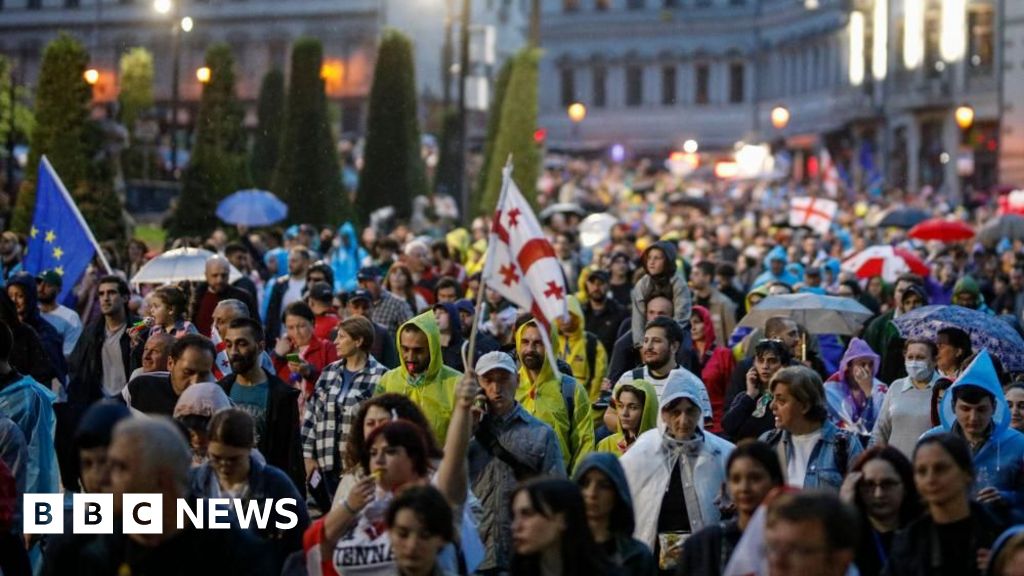image source, Getty Images
- author, Reyhan Demitry
- role, BBC News Caucasus correspondent
Tens of thousands of Georgians took to the streets of the capital Tbilisi on Saturday night to protest against a controversial “foreign influence” bill supported by the government.
Demonstrators marched to the capital's Europa Square carrying Georgian and EU flags and chanted “No to Russian laws.”
The law targets civil society organizations and independent media that receive foreign funding.
The Black Sea Caucasus country has sparked mass rallies for almost a month after the ruling Georgian Dream party reintroduced the bill.
Despite an intimidation campaign that preceded Saturday's rally, in which dozens of NGO workers, activists and opposition politicians were threatened and physically assaulted, protesters were forced to flee in the pouring rain. Undeterred, thousands of people gathered.
Opposition parties say the bill, dubbed the Russia Law after Russia passed a similar law in 2012, will be used by the government to crack down on dissent.
The United States argued that the bill threatened freedom of speech.
In neighboring Russia, the law has since been used to marginalize voices dissenting from the Kremlin, including prominent cultural figures, media outlets and civil society groups.
Many Georgians attending the rally do not want Russia's authoritarian leader to invade their country.
“There is no need to return to the Soviet Union,” said Lela Chiklauri, 38, a Georgian language teacher.
image source, Getty Images
image source, Getty Images
“We are defending the future and freedom of Europe,” said another demonstrator, Mariam Munrugia, 39, who works for a German company.
If passed, the law could have a negative impact on Georgia's attempts to join the EU, which has given it candidate status.
On Friday, the foreign ministers of the Nordic and Baltic states issued a joint statement urging the Tbilisi government to reconsider the bill.
Last week, European Commission President Ursula von der Leyen said Georgians want a “European future”.
“Georgia is at a crossroads. We must stay on the path to Europe,” she wrote on X.
However, the Georgian Dream government defended the bill, saying it would “increase transparency” into NGOs' overseas funding. The goal is to have the bill signed into law by mid-May.
If passed, the law would require independent NGOs and news organizations that receive more than 20% of their funding from abroad to register as “organizations pursuing the interests of foreign powers.”
But protesters fear the system could be used to suppress critical voices ahead of parliamentary elections later this year.
The bill passed the second stage of parliament by a margin of 83 to 23 votes. After the third reading, the bill will need to be signed by President Salome Zurabishvili, who has vowed to veto her, but Georgian Dream won enough votes in parliament to veto her. are doing.
In 2023, large-scale street protests forced Georgian Dream to cancel plans for a similar measure.


